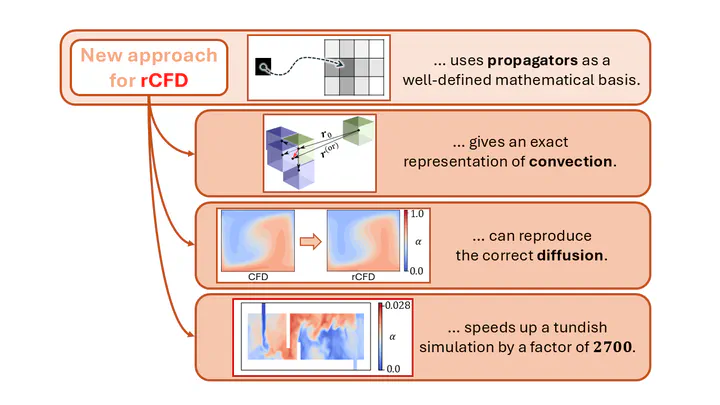Propagator-moments approximation for recurrence CFD: application to species transport in turbulent flows
Apr 4, 2025·, ·
1 min read
·
1 min read
Hannes Lumetzberger
Stefan Pirker
Thomas Lichtenegger

Abstract
Accurate, long-term simulations of turbulent flows pose a large challenge for standard CFD algorithms. Recurrence CFD (rCFD) provides a simple, data-assisted approximation for recurrent dynamics. We present the theoretcal foundations of this approach in terms of propagator theory for passive transport processes and derive expressions for convective and diffusive contributions to large-step species transfer. We tested our new implementation on a double-sided, cuboid lid-driven cavity and compared various treatments of diffusion against detailed CFD calculations. Based on these insights, we applied the methodology to a down-scaled, industrial case of impurity transport in a steelmaking tundish at Reynolds number Re = 220 000. We obtained results in mostly very good agreement with detached-eddy simulations at 1/2700 of their runtime, which made rCFD faster than real time.
Publication
Propagator-moments approximation for recurrence CFD: application to species transport in turbulent flows
In his first paper, my PhD student Hannes employed the propagator formalism to establish a theoretical framework for transport-based recurrence CFD. Not only can we simulate transport processes, e.g., in turbulent flows faster than real time, now we also understand why. In the course of these theoretical developments, Hannes managed to determine a correction term for numerical diffusion in rCFD which makes simulation results also more accurate than those in our previous studies.